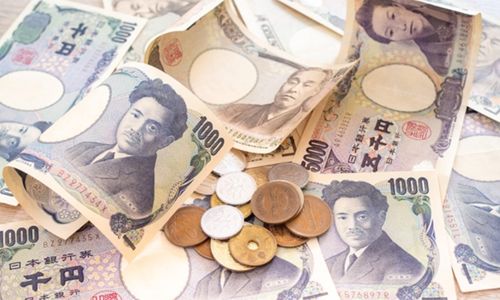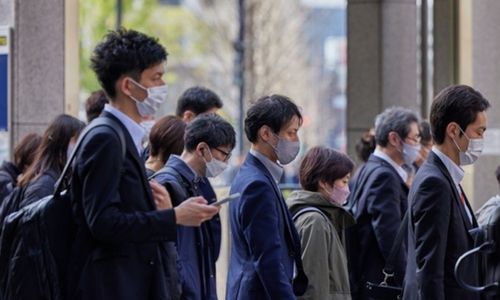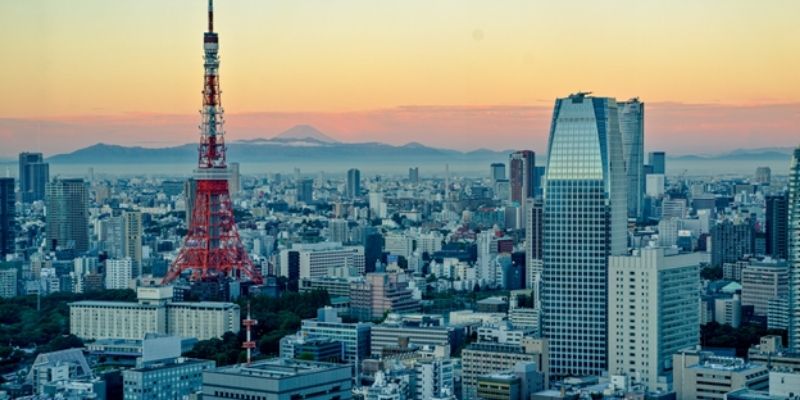Average Income for Japan is an important measure of living standards and economic stability. Currently, it ranges from ¥4.5 to ¥5 million per year (about $30,000 to $35,000 USD). This varies by job, experience, and location, with cities like Tokyo offering higher wages. Understanding the Average Income for Japan helps expats and job seekers plan better for life and work in the country.
In 2025, the Average income for Japan offers a clear picture of both economic conditions and quality of life. On average, workers earn about ¥516,000 per month (roughly USD 3,500), which can differ greatly depending on location, job sector, and work experience. Knowing this helps people and companies make informed decisions about income expectations nationwide.
Exploring Japan’s Average Salary Levels
The average monthly salary in Japan is around ¥516,000, which comes out to about ¥6.1 million per year or roughly USD 41,800. However, this is just a general estimate; actual earnings can vary a lot depending on your industry, work experience, and where you live.
For example, people working in tech or finance tend to earn more than the national average, while jobs in retail or hospitality usually pay less. Major cities like Tokyo and Osaka also offer higher salaries compared to rural areas, mainly due to higher living costs and greater demand for skilled workers.
Other factors like age, education, and gender also play a role in income levels. In many fields, men still tend to earn more than women. Understanding these differences gives you a clearer picture of what to expect when it comes to earning potential in Japan.

Income in Japan varies by job skill and region
Standard Income per Household in Japan
When looking at how much families in Japan earn in 2025, the numbers give us a good sense of everyday life and financial well-being across the country. On average, households with at least one working member bring in about ¥636,155 per month, which adds up to around ¥7.6 million a year or roughly USD 51,000, depending on the exchange rate.
Of course, not every household earns the same. Income levels often vary depending on how many people are in the family, what kind of jobs they have (full-time, part-time, or freelance), and where they live. Bigger cities like Tokyo or Osaka usually offer higher household incomes, thanks to more job opportunities and higher costs of living. In contrast, families living in rural areas may earn less, but also face lower daily expenses.
According to OECD data, Japan’s average net-adjusted disposable income per person is about USD 28,872, which is slightly below the OECD average of USD 30,490. This gives us a clearer picture of how much money households have available for spending after taxes.
While these figures help understand overall trends, each household’s situation is unique and shaped by many things like education, job stability, and lifestyle choices.

Household earnings in Japan vary by location.
Average Japanese Income by City
In 2025, average salaries in Japan differ widely depending on the city, driven by factors like industry presence, job availability, and the local cost of living. Urban centres such as Tokyo, Osaka, and Yokohama typically offer higher wages thanks to their strong economies, dense business networks, and demand for skilled professionals.
These cities not only provide more career opportunities but also come with higher living costs, which partly explains the pay increase. Meanwhile, smaller cities and rural areas may offer lower salaries but often balance that with a more affordable lifestyle. For anyone considering working or relocating in Japan, understanding these regional income differences is essential for making realistic and informed decisions.
|
City |
Average Monthly Salary (JPY) |
Approx. USD Equivalent |
|
Tokyo |
¥576,000 |
~$3,884 |
|
Yokohama |
¥566,000 |
~$3,816 |
|
Osaka |
¥557,000 |
~$3,760 |
|
Nagoya |
¥547,000 |
~$3,690 |
|
Sapporo |
¥537,000 |
~$3,621 |
|
Fukuoka |
¥528,000 |
~$3,560 |
|
Kobe |
¥517,000 |
~$3,485 |
|
Kyoto |
¥507,000 |
~$3,418 |
|
Kawasaki |
¥497,000 |
~$3,351 |
|
Saitama |
¥487,000 |
~$3,280 |
|
Hiroshima |
¥477,000 |
~$3,220 |
|
Sendai |
¥467,000 |
~$3,149 |
|
Okinawa |
¥390,000 |
~$2,873 |
Each city in Japan has its economic character, and that’s reflected in local salary levels. Tokyo remains at the top when it comes to income, which isn’t surprising given its role as the country’s financial and economic powerhouse. Cities like Yokohama and Osaka also offer competitive salaries, thanks to their strong local economies and proximity to Tokyo.
Nagoya stands out as a major manufacturing and industrial hub, which contributes to its higher-than-average wages. Meanwhile, Sapporo and Fukuoka may not lead in income, but they strike a nice balance between decent salaries and a more affordable cost of living, something many young professionals value today. Okinawa, known for its tourism-driven economy, has the lowest average income among these cities, but the lower living expenses can help even things out.
These differences show why it’s important to look beyond just salary figures when considering job opportunities in Japan. Thinking about living costs, lifestyle, and long-term goals can help you make smarter and more satisfying choices.
Average Income in Japan in US Dollars
If you’re thinking about working or living in Japan, it’s helpful to know what kind of salary you might expect, especially when converted into U.S. dollars. In 2025, the typical monthly income in Japan is around ¥516,000, which is roughly USD 3,485. That adds up to an annual income of about USD 41,820, giving a solid point of reference for planning your finances.
Keep in mind, though, that salaries can differ quite a bit depending on your job, experience, education, and even the city you live in. For example, people working in places like Tokyo or Osaka often earn more than those in smaller towns, partly due to the higher cost of living and greater demand for skilled professionals.
It’s also worth mentioning that the median monthly wage, the amount right in the middle of the pay scale, is slightly lower, at around ¥472,000, or approximately USD 3,188. This means many workers earn either just above or just below this range.
Understanding what incomes look like in U.S. dollars can make it easier to compare opportunities, set realistic expectations, and decide where and how you want to live in Japan.

The average Japanese salary varies by job and city location.
Income by Age, Gender, and Experience Level
In Japan, your salary isn’t determined by your job title alone. Factors like age, gender, and work experience all play a big part in how much you can earn throughout your career.
When looking at age, income generally increases over time. A worker in their 20s might earn somewhere around ¥280,000 per month, while someone in their 50s could take home closer to ¥450,000 monthly. This steady rise reflects a long-standing system in Japan where seniority and years on the job are often rewarded with higher pay.
Gender still influences income as well. Although progress is being made, there’s a noticeable pay gap between men and women. On average, female employees earn about 75% of what their male counterparts make. For example, men may earn around ¥342,000 per month, compared to ¥259,000 for women, based on recent data.
Having experience is another key factor. Employees with a few years under their belt, typically 2 to 5 years, tend to earn roughly 30% more than those just starting. As workers gain 5 to 10 years of experience or more, their salaries continue to grow accordingly.
Whether you’re just entering the workforce or already building your career in Japan, understanding how these factors affect income can help you plan your next move wisely.

Earnings in Japan are influenced by factors like age, sex, and job tenure.
Average Income by Industry in Japan
In 2025, salaries in Japan differ widely between industries, reflecting the country’s diverse and dynamic economy. Some sectors offer higher pay due to specialised skill demands or their role in essential services, while others, like hospitality or retail, tend to have lower wages.
For anyone exploring job options in Japan, understanding these income differences is essential. It helps set realistic expectations, guides career planning, and points to where the best opportunities might be based on your skills and goals.
|
Industry |
Average Monthly Salary (JPY) |
Approx. USD Equivalent |
|
Basic Household Utilities |
¥1,111,379 |
~$7,300 |
|
Finance and Insurance |
¥1,012,585 |
~$6,650 |
|
Information and Communications |
¥932,805 |
~$6,120 |
|
Technical Professions and Scientific Development |
¥742,160 |
~$4,870 |
|
Real Estate and Equipment Hire Services |
¥625,864 |
~$4,100 |
|
Medical and Health Care |
¥417,176 |
~$2,740 |
|
Wholesale and Retail Trade |
¥386,031 |
~$2,540 |
|
Lifestyle Assistance and Amusement Industries |
¥292,235 |
~$1,920 |
|
Guest Services and Food Establishments |
¥152,243 |
~$1,000 |
Note: Salary figures in USD are estimates based on 2025 exchange rates and may vary slightly depending on market changes.
In Japan, salaries can vary quite a bit depending on the field you work in. Some industries consistently offer higher income, particularly energy, banking, and tech-related sectors. These areas tend to pay more because they require specialised knowledge, technical skills, and often involve more responsibility.
Other professions, such as real estate, research, and consulting, offer moderate pay levels. While not as high as top-tier industries, these jobs still provide steady income for those with the right experience and qualifications.
On the lower end, jobs in hospitality, food services, and personal support often come with more modest earnings. These roles typically have fewer requirements to enter and are more likely to involve part-time or shift-based work.
Understanding how different industries compensate can help when planning your career in Japan. It’s not just about the paycheck; your choice of industry also plays a big role in your work-life balance and long-term satisfaction.
Is It Enough? Living on the Average Income in Japan
Earning around ¥516,000 a month in Japan can cover daily living quite well, but your comfort level depends largely on where you choose to live. In places like Tokyo, costs add up fast. Rent, food, transport, and other essentials can push monthly spending beyond ¥300,000, which doesn’t leave much room for saving or extras.
On the other hand, life in smaller cities such as Fukuoka or Gifu is much easier on the wallet. Monthly living costs in these areas can range from ¥120,000 to ¥180,000, allowing your income to go much further. Still, it’s good to keep in mind that while some industries are seeing better pay, rising living expenses, especially in major cities, are quietly eating into the value of that income.
Conclusion
By 2025, the average income in Japan, about ¥516,000 per month, is enough for a stable life, but how comfortable that life is will depend a lot on your profession, level of experience, and especially the city or region you choose to live in. Larger cities often offer better pay, but also come with higher expenses. Meanwhile, smaller towns may offer lower wages but make up for it with more affordable living costs.
If you’re planning to live and grow your career in Japan long-term, choosing the right place to settle is just as important as finding the right job. That’s where Arealty steps in with friendly guidance and trustworthy housing services that match your lifestyle and budget. Balancing income with day-to-day expenses is key to making smart choices, not just for work, but for a comfortable and fulfilling life in Japan.






Leave a Reply